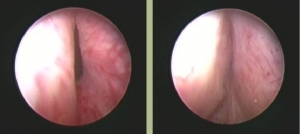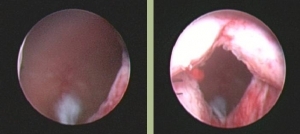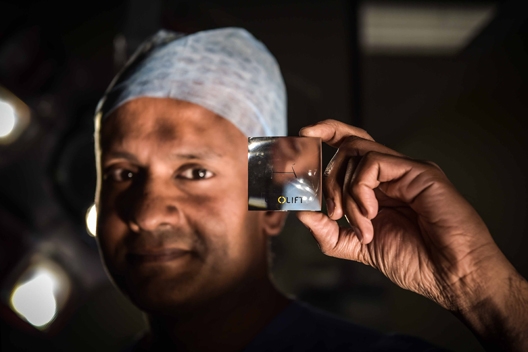Mr N Thiruchelvam, from Addenbrookes Hospital and Cambridge Urology Clinic is now able to offer patients Urolift, a new implant to treat male lower urinary tract symptoms due to benign prostatic enlargement. Upto 70% of men suffer from symptoms of urinary frequency and urgency, straining to pee and urinary hesitancy. Until recently, men received medication and if these drugs failed or were insufficient to improve symptoms, men were offered surgery. Men also underwent surgery if they didn’t like the side effects of medication, namely a dry orgasm (due to retrograde ejaculation), lowered libido or impotence, Current surgical techniques involve cutting away the prostate to open up the prostatic channel, in the form of a TURP. This remains the most effective treatment. However, all surgical techniques involve an anesthetic and a temporary catheter post surgery. Following surgery, men may experience burning and blood in the urine. Most men require 4-6 weeks off work, depending on occupation. There is also a very high chance of permanent dry orgasm and a small chance of permanent urinary incontinence and impotence.
Urolift is a new device invented in America. The technique, which can be performed under a local anaesthetic, involves placing permanent implants which pull open the prostatic urethra, thereby causing an immediate opening of the urethra. The procedure usually does not require post surgery catheterisation and is a truely day case operation. The average time to return to work or daily activities is 5 days. Also of note is that there have no been reported incidences of dry orgasms or erection problems. Heavy investment by the company to research the device has led to widespread publication in all the leading Urological Journals and subsequent FDA approval in 2013 and NICE approval in January 2014. The published evidence showed that in men treated with Urolift, the flow rate improved by 50% (upto twice that of drugs), symptoms improved by 50% (up to 2-3 times that seen with drugs) and no sexual dysfunction. Currently follow-up data is published upto to two years. There was no incidence of sexual dysfunction in any of the studies. 80% of men in the control arm of studies elected to undergo Urolift.

Before...
Before...





